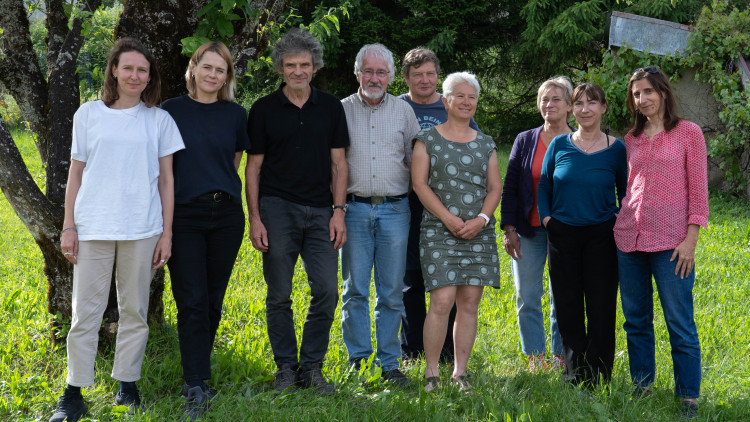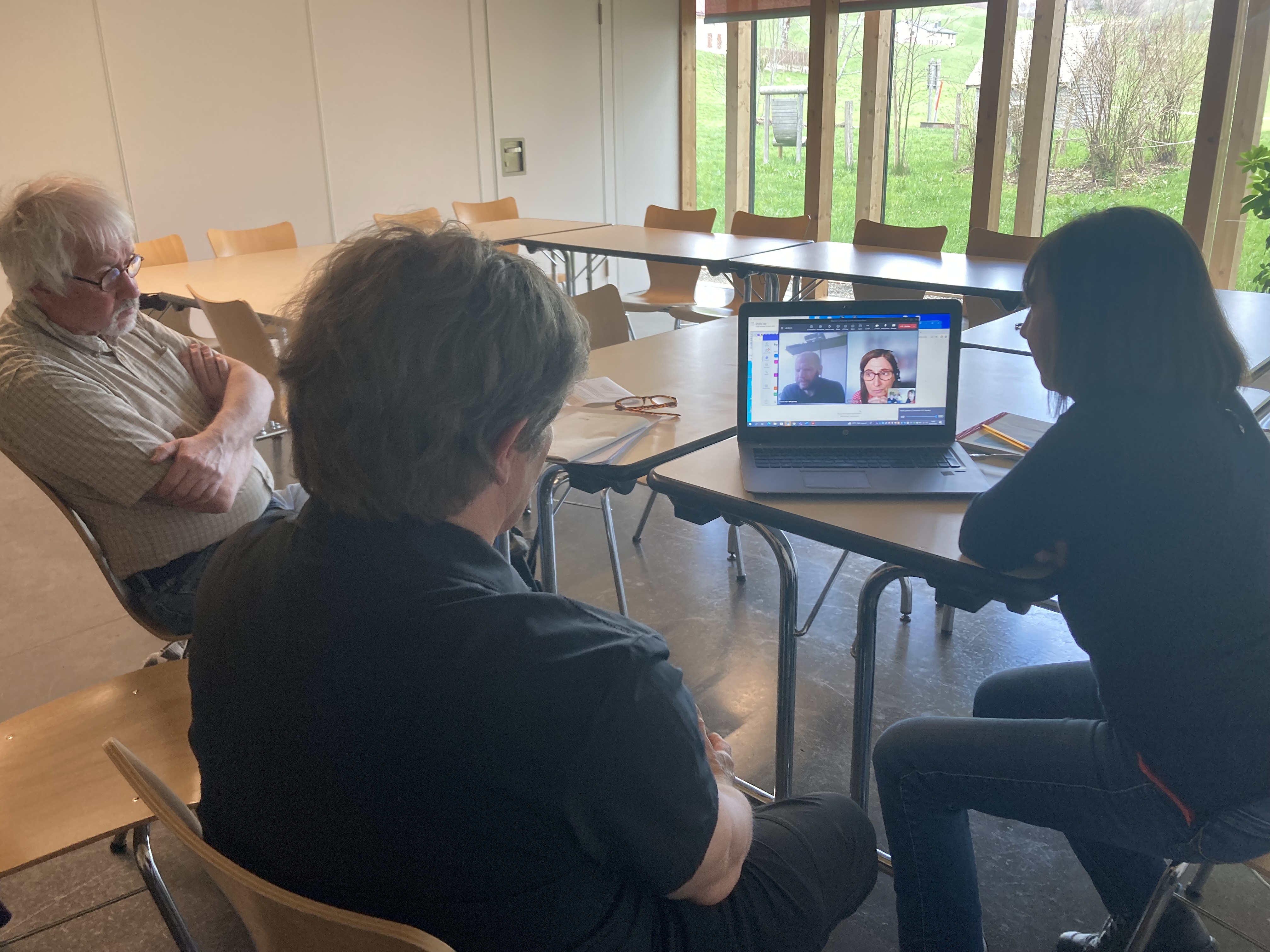The European project ‘Water Commons’start in Haut-Jura Regional Nature Park in France!

These are the first steps that were taken in the Water commons project
First steps. 22nd February 2023
We begun working with the Haut-Jura Regional Park in 2022. The Haut-Jura Regional Park is a major player in the consideration of the future of water resources. For many years now, it has been taking action to help improve and maintain the quality of the river system (restoration of watercourses, ecological continuity, flood prevention) and to anticipate the environmental and social issues involved in sharing water resources across a wide range of uses.
We also started this process with the Ministry of Culture / DRAC Bourgogne-Franche-Comté which has set up a program of artistic residencies and commissions: Nature in Solidum, with the Nature Park around echology and environment challenges.
We had a first meeting in 22nd February with the staff of the Regional Park who is in charge of water and Marie-Pierre Reynet in charge of Culture. We clarified the subject and the common thread of the commission would be the karst, a component of the Jura mountains and characterised by large fractured limestone massifs through which water seeps down. The long dry periods observed in recent years have reinforced the vulnerability of the water resource present in the karst, which provides water for 1/3 of the population.

Meeting with the commissioners for a discussion about the potential demand. 3rd May 2023
Speleologists François Jacquier and Anne Corriol, and an elected representative of the village La Rixouse are particularly concerned by this question are the commissioners, they will play different roles in the process of the research with the invited artist.
On Tuesday 2nd May, a global approach and first steps for the development of the commission have been discussed in order to write the final statement which can be presented to the artists.
The question of the water cycle in karstic environments has become a major environmental issue, little known and poorly understood by the general public, although it is the subject of observation and study by geographers, hydrogeologists and speleologists: the latter being the first witnesses of its rapid evolution and resource persons for research.
Karst, or "field of stones" in German, comes from the Slovenian name karst, designating the region made up of high limestone plateaus. The term was later extended to sites with the characteristics of large fractured limestone massifs in which water circulates at depth.
The issues and problems associated with these environments are not limited solely to the exploitation and preservation of ground water. They are multiple and affect qualitative and quantitative aspects, such as:
- adapting to the effects of climate change and the impact on water availability;
- the trophic level of water and the self-purification capacity of watercourses;
- the ability of regions to conserve the remarkable biodiversity of their aquatic environments.
The invitation to artists to take part in this reflection aims to raise awareness of these ongoing climate changes, and even to better anticipate the consequences on natural environments, on the resource, on its management, and above all on the sharing and uses of what must be collectively reconsidered as a "common good".
How can we improve our knowledge of this very special geological context: an underground network that is by definition invisible and therefore difficult to understand or even represent?
The notion of invisibility and the question of flow have determined the type of work expected. It will not be in situ, but mobile: film, drawings, texts, publications, sound work, digital work, to be presented in various places in the region and beyond.
The commissioning group will be given priority in the use of the work, particularly with a view to passing it on and raising awareness.
Meeting in La Rixouse to discuss the choice of the artist 24th July 2023
With François Jacquier and Anne Corriol Speleologists, Phillipe Perrin,
counsellor for La Rixouse, Corinne Gambi DRAC Bourgogne-Franche-Comté/ Ministry of Culture, Marie-Pierre Reynet in charge of Culture at the Haut-Jura Regional Park
The choice fell on DISNOVATION.ORG. a research collective set up in Paris in 2012, whose core members are Maria Roszkowska (pl/fr), Nicolas Maigret (fr), Baruch Gottlieb (ca/de). They work at the interface between contemporary art, research and hacking, putting together bespoke teams for each investigation with academics, activists, engineers and designers. More specifically, their recent artistic provocations seek to inhabit post-growth imaginaries and practices while challenging dominant techno-solutionist ideologies. Their research includes artworks, publications and curatorial work.
The subject of the commission crosses their preoccupations with a constant desire to make their works permanently accessible, particularly via the internet; the commission also echoes their working method, which aims to involve scientists and researchers in their creations. For the commissioners, their work and the media they use are immediately effective, and can easily reach a large audience.
